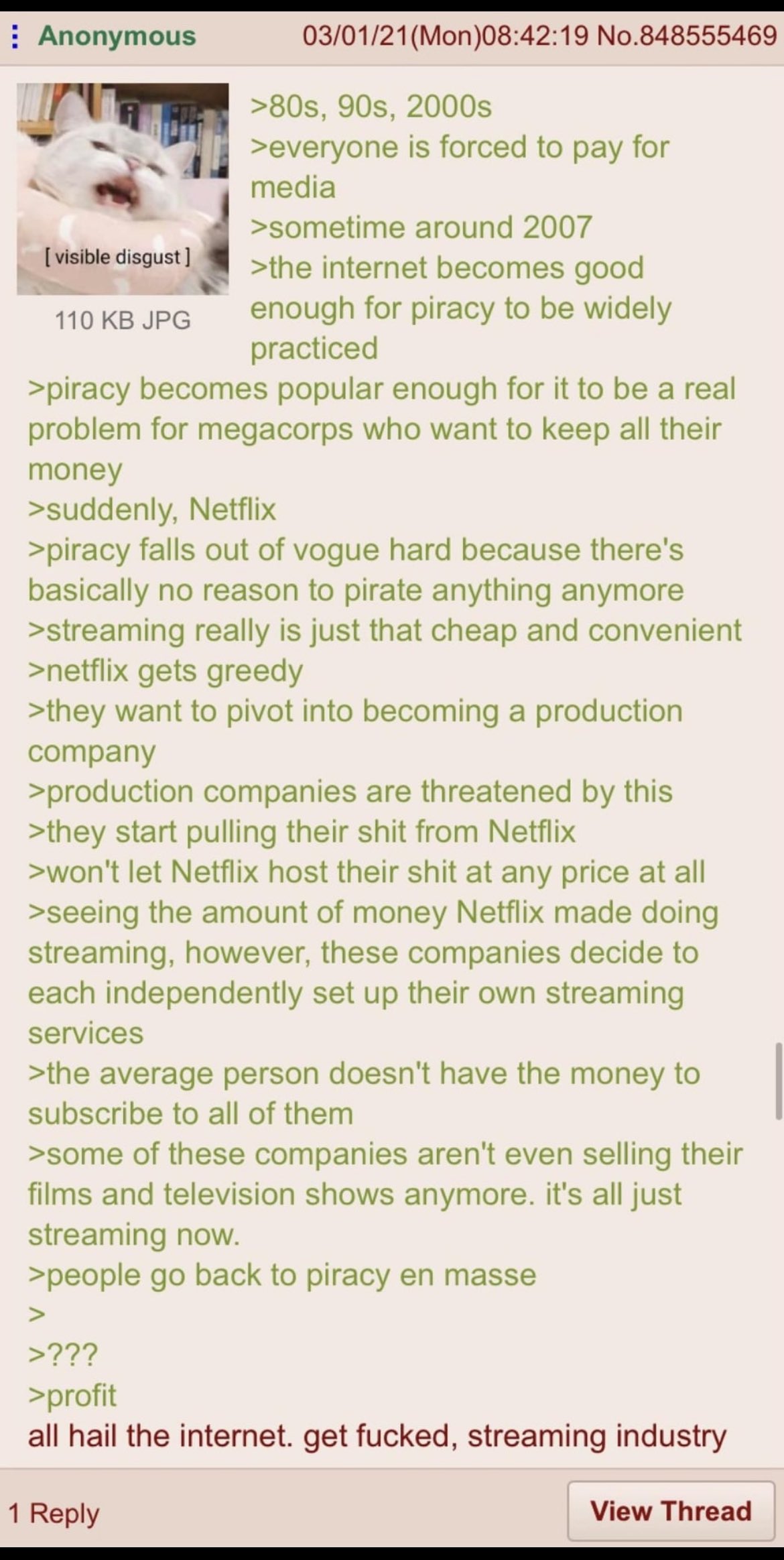this post was submitted on 25 Dec 2024
1390 points (98.3% liked)
Greentext
4635 readers
1535 users here now
This is a place to share greentexts and witness the confounding life of Anon. If you're new to the Greentext community, think of it as a sort of zoo with Anon as the main attraction.
Be warned:
- Anon is often crazy.
- Anon is often depressed.
- Anon frequently shares thoughts that are immature, offensive, or incomprehensible.
If you find yourself getting angry (or god forbid, agreeing) with something Anon has said, you might be doing it wrong.
founded 1 year ago
MODERATORS
you are viewing a single comment's thread
view the rest of the comments
view the rest of the comments

You can also argue that silicon valley has that particular business model of purposely making a product look great and cheap until enough people sign up.
It's distinct from how most companies run in the red at their inception in that those traditional businesses would gladly be in the black but are waiting for economies of scale or building a reputation among consumers.
And that's probably why people get so disappointed w/ tech companies.
It's not that the prices they switch to are unreasonable, but that they hike prices after getting a user base, so it feels like a bait and switch instead of an early bird discount. If they made it an actual early bird discount, people would probably be fine with it.
Or maybe they keep prices the same, but drop content while keeping prices the same. If they instead structured it as a base tier and an "early bird" free access to a higher tier, which then starts costing money after some time period, I also think people would be okay with it. I have always thought Netflix should have packages, so you could opt-in to additional stuff like maybe Disney or HBO content. If Netflix did this early on, maybe Disney and HBO wouldn't have bothered making their own streaming platforms and instead just raked in revenue from these higher tier customers, because they get most of the benefit of having their own streaming platform, with none of the costs.
In pretty much every case, I'll point to Valve's business model as an example. Gaming companies generally don't feel the need to run their own platforms, and the ones that do often still distribute through other stores.
Valve was the first, their business model was basically removing retail (the actual reason for Steam was to make updates trivial, so a Counterstrike update didn't break half the servers for 2 weeks), for everyone after Steam the business model was removing Steam by replacing it with a Steam clone.
That package thing they do on prime video
Yeah, but Prime sucks in other ways. I wish I could combine what I like about Prime and Netflix into one service.